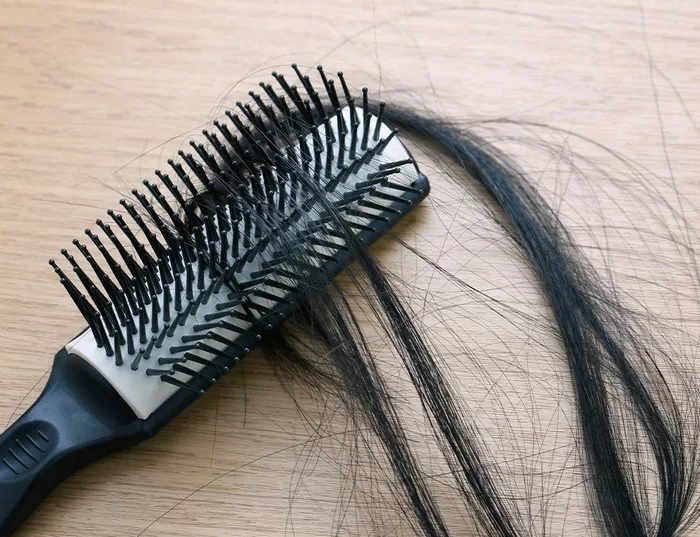Hair loss is a universal concern that affects people of all ages and genders. Whether gradual or sudden, the loss of hair can be a distressing experience, impacting one’s appearance and self-esteem. In this comprehensive article, we will delve into the various facets of hair loss, exploring its causes, different types, and potential solutions.
I. Understanding the Causes of Hair Loss: Unraveling the Mystery
1. Genetics: One of the most common causes of hair loss is genetic predisposition. Male-pattern baldness and female-pattern baldness are hereditary conditions that can lead to progressive hair thinning and eventual loss.
2. Hormonal Changes: Hormonal fluctuations play a significant role in hair loss. Pregnancy, childbirth, menopause, and conditions like polycystic ovary syndrome (PCOS) can disrupt the delicate balance of hormones, affecting the hair growth cycle.
3. Medical Conditions: Certain medical conditions, including thyroid disorders, autoimmune diseases, and alopecia areata, can contribute to hair loss. Understanding and managing the underlying health issue is crucial for addressing associated hair loss.
4. Nutritional Deficiencies: Inadequate nutrition, particularly deficiencies in iron, zinc, and vitamin D, can impact hair health. A well-balanced diet that includes essential nutrients is vital for promoting healthy hair growth.
5. Stress and Lifestyle Factors: High-stress levels and an unhealthy lifestyle can contribute to hair loss. Chronic stress can induce a condition known as telogen effluvium, where hair follicles prematurely enter the resting phase.
II. Different Types of Hair Loss: Patterns and Characteristics
1. Androgenetic Alopecia: Commonly referred to as male-pattern baldness and female-pattern baldness, androgenetic alopecia is the most prevalent form of hair loss. It follows a specific pattern, with hair thinning at the crown or temples.
2. Alopecia Areata: Alopecia areata is an autoimmune condition where the immune system attacks hair follicles, leading to sudden, patchy hair loss. In severe cases, it can progress to total baldness (alopecia totalis) or loss of all body hair (alopecia universalis).
3. elogen Effluvium: Telogen effluvium is characterized by a sudden and widespread shedding of hair. It is often triggered by significant stress, illness, or major life changes and usually resolves once the underlying cause is addressed.
4. Traction Alopecia: Traction alopecia results from prolonged tension on the hair, often due to tight hairstyles or hair accessories. It can lead to gradual hair loss, especially around the hairline.
5. Scarring Alopecia: Scarring alopecia involves the destruction of hair follicles and the replacement of hair follicles with scar tissue. This irreversible condition can result from various inflammatory skin conditions.
III. Potential Solutions for Hair Loss: Exploring Options
1. Topical Treatments: Minoxidil, a topical medication, is FDA-approved for promoting hair growth and is commonly used to treat androgenetic alopecia. It is available over-the-counter and can be applied directly to the scalp.
2. Prescription Medications: Finasteride, an oral prescription medication, is approved for treating male-pattern baldness. It works by inhibiting the hormone responsible for hair loss. Women of childbearing age should avoid this medication due to potential birth defects.
3. Hair Restoration Procedures: Hair transplantation is a surgical procedure that involves taking hair follicles from one part of the scalp (or body) and transplanting them to areas experiencing hair loss. This procedure is effective for certain types of alopecia.
4. Laser Therapy: Low-level laser therapy (LLLT) is a non-invasive treatment that uses red light to stimulate hair growth. It is available in various forms, including laser combs, helmets, and caps.
5. Platelet-Rich Plasma (PRP) Therapy: PRP therapy involves drawing a small amount of the patient’s blood, processing it to concentrate platelets, and then injecting the PRP into the scalp. This is believed to stimulate hair follicles and promote growth.
FAQs on Hair Loss:
1. Can hair loss be prevented?
While some types of hair loss are genetic or hormonally related, adopting a healthy lifestyle, managing stress, and addressing underlying medical conditions can contribute to preventing or minimizing hair loss.
2. Are there natural remedies for hair loss?
Some natural remedies, such as scalp massage, essential oils, and a balanced diet, may support overall hair health. However, their efficacy as standalone treatments for significant hair loss is limited, and professional guidance is advisable.
3. Is hair loss reversible?
The reversibility of hair loss depends on the underlying cause. In some cases, addressing the root cause can lead to regrowth, while in others, management and slowing of further loss may be the primary goal.
4. Are over-the-counter products effective for hair loss?
Over-the-counter products, such as shampoos and supplements, may claim to promote hair growth. However, their effectiveness varies, and it’s essential to consult with a healthcare professional before trying these products.
5. What role does nutrition play in preventing hair loss?
Adequate nutrition is crucial for maintaining healthy hair. A diet rich in vitamins, minerals, and proteins supports the hair growth cycle. Nutritional deficiencies can contribute to hair loss, so a balanced diet is key.
6. How long does it take for hair to regrow after treatment?
The timeline for hair regrowth varies among individuals and depends on the type of treatment and the underlying cause of hair loss. Patience and consistency are essential when pursuing hair loss treatments.
In conclusion, understanding the causes and types of hair loss is vital for choosing appropriate solutions. Whether seeking medical intervention or adopting lifestyle changes, addressing hair loss requires a personalized approach. Consultation with healthcare professionals or dermatologists can provide valuable insights and guidance on the most suitable treatments for individual cases of hair loss.

